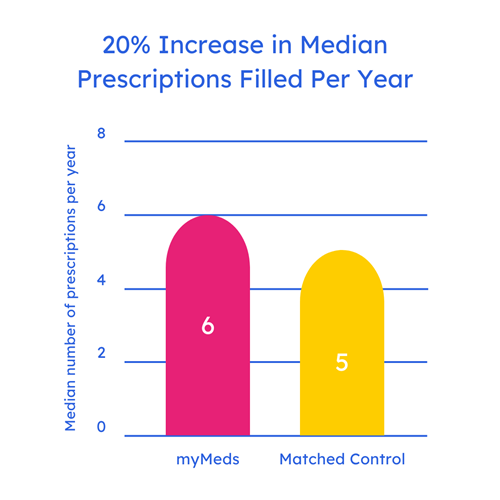Case Study: myMeds—A multichannel support programme for Type 2 Diabetes
Background
The Challenge
- Type 2 diabetes is a common, progressive, and long-term health condition that can place a significant burden on patient and healthcare resources if not managed
- Oral hypoglycaemic agents are the first-line pharmacological treatment to delay the need to start insulin therapy
- Adherence to oral hypoglycaemic agents can be as low as 36%
- Targeting people's beliefs about their condition and medication can improve adherence to treatment
Our Behaviour Change Approach
- Health psychology theory and behavioural science principles were used to develop the programme content
- Focus groups were conducted with patients to develop insights into their understanding of diabetes and how they used their medications
- SMS messages, emails, and webpages were designed using validated behaviour change techniques
- Nurse calls were guided by behaviour change principles and the nurses adopted a motivational interviewing approach to patient interactions
The Solution
The myMeds support programme provided a highly-personalised, multichannel experience tailored to address key nonadherence risk factors for each patient in their 26-week programme journey
Topics addressed included:
- Illness perceptions
- Medication concerns
- Strategies to help with remembering and organising
- Medication necessity
- Diabetes distress
Patient beliefs were measured at enrolment to personalise their programme journey, and determine intervention intensity (low, medium, high)

The Impact
-
20% increase in median prescriptions filled per year compared to matched control group
-
Significant increase in total number of prescriptions filled by myMeds patients (median = 6.0) compared to baseline (median = 5.0)
-
81% NPS (recommend myMeds to others)
In addition to improvements in adherence, the myMeds programme:
- Improved disease and treatment understanding
- Improved patients' ability to self-manage
- Improved patients' health overall, as reported by 76% of patients
Learn more about our behaviour change solutions.

